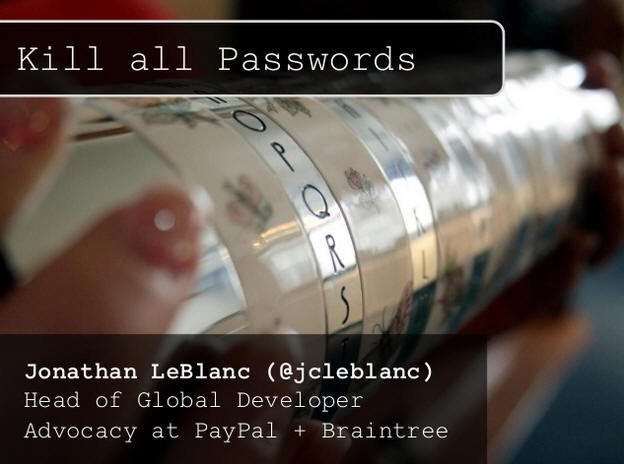PayPal offers users to store logins and passwords inside the body

Innovation engineers at PayPal are confident that the future of authorization is for identification tools that can be integrated into the body, inserted into tissues, or swallowed. Presentation of " Kill passwords " (Kill all Passwords) demonstrates the unreliability and inconvenience of the existing system (for example, according to their data, passwords, 91% of people there are in the list of the 1000 most popular passwords), and promotes the idea of identifying the future.
The concept of logins and passwords has long been criticized by service providers. They are accused of insufficient security of services, and they, in turn, accuse users of insufficient caution. Various attempts have been made to replace password authentication with other methods - fingerprints and face recognition are no longer exotic.
PayPal especially cares about the safety of users - after all, this is not just some kind of online service or forum - it is a service of access to money. Therefore, the company offers to move the identification forward. Having no particular faith in supporting procedures such as analyzing the user's habits, their favorite browser and geographical location, the engineers propose moving from an external identification (fingerprints, retina, face) to an internal one - a heartbeat, vein pattern, and even identification marks built into the body.
Jonathan LeBlanc, PayPal Development Director, talks about such ideas, like a chip built into the skin that tracks the heartbeat and transmits data wirelessly through an antenna built into the tattoo. Or capsules that measure glucose or other unique parameters of a person that he swallows and uses for identification.
LeBlanc makes no promises or predictions about which technologies PayPal will use in the near future. But the company is trying to position itself as a leader in the development of new identification methods and will try to introduce something new into this important process.
